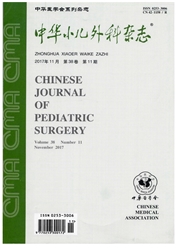

 中文摘要:
中文摘要:
目的 将人隐睾特异性诱导多能性干细胞在体外定向分化形成生殖细胞.方法 将人隐睾特异性诱导多能性干细胞在去除饲养层细胞的条件下进行贴壁培养,诱导液中加入BMP4因子,诱导的不同阶段收集分化后的细胞进行细胞免疫染色和生殖细胞特异基因表达的检测.结果 人隐睾特异性诱导多能性干细胞在体外可分化形成DAZL阳性细胞,加入BMP4诱导分化的细胞中,DAZL阳性细胞数明显高于未加入BMP4的细胞,但没有观察到SCP3阳性细胞;加入BMP4诱导分化后的细胞DAZL基因的表达量是未加入BMP4的2倍,生殖分化后期相关基因VASA表达略有上升,TEKT1的表达无明显变化;诱导分化实验尚未形成单倍体的精子.结论 BPM4因子可促进人隐睾特异性诱导多能性干细胞在体外分化形成原始生殖细胞,为将来继续诱导形成单倍体精子打下了重要的基础,为隐睾的防治提供借鉴.
 英文摘要:
英文摘要:
Objective To explore the differentiation of germ cells from human cryptorchid-specific induced pluripotent stem (cryp-ips) cells.Methods Human cryp-ips cells were cultured on feeder-free plate supplemented with bone morphogenetic protein 4 (BMP4).Gene and protein expressions of differentiated cells were analyzed by quantitative polymerase chain reaction (Q-PCR) and imrnunostaining to monitor germ cell development.Results DAZL positive cells were obviously more in differentiated cells with BMP4 than those in differentiated cells without BMP4.After differentiating with BMP4,DAZL showed a 2-fold change,the expression level of VASA was slightly elevated and TEKT1 changed little.SCP3 positive cells were not detected.Conclusions Cryp-ips cells may differentiate in vitro into early-stage germ cells via BMP4 induction.This preliminary experiment will facilitate subsequent studies of deriving haploid germ cells.
 同期刊论文项目
同期刊论文项目
 同项目期刊论文
同项目期刊论文
 期刊信息
期刊信息
